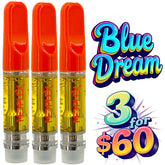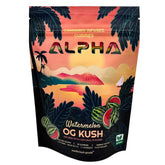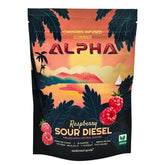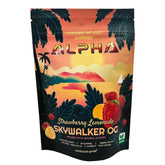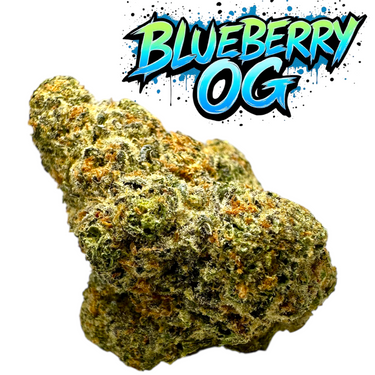What is THCA Flower? Is THCA Flower Legal In My State?
What is THCA? The Legal Landscape, Terpene Profiles, and a Guide to the Unheated Cannabinoid
In the rapidly evolving world of cannabis, Tetrahydrocannabinolic acid (THCA) has become a focal point of discussion and innovation. Found abundantly in raw, unheated cannabis plants, THCA is the acidic precursor to the well-known psychoactive compound, Delta-9 THC.
Unlike Delta-9 THC, THCA itself is non-intoxicating. This means that consuming raw THCA, such as in a fresh juice or tincture, will not produce a "high." The transformative moment occurs through a process called decarboxylation – when THCA is exposed to heat (e.g., by smoking, vaping, dabbing, or cooking). This heat removes a carboxyl group, converting the non-intoxicating THCA into the psychoactive Delta-9 THC. This unique chemical property is fundamental to understanding its legal status and the growing market for THCA exotic flower.
Is THCA Legal in My State? A Look at Florida's Laws as of Mid-2025
The legality of THCA is intricately linked to the 2018 Farm Bill, which federally legalized hemp defined as cannabis with a Delta-9 THC concentration of no more than 0.3% on a dry weight basis. This federal framework has created a nuanced legal environment for THCA products.
In Florida, as of July 2025, hemp-derived THCA remains legal, but with a critical condition: the product's "total THC" content must stay below the 0.3% limit. Florida implements a strict "total THC" testing method. This means laboratories calculate the existing Delta-9 THC and predict how much THCA will convert into Delta-9 THC when heated. The combined total of these two figures must not exceed 0.3% on a dry weight basis for the product to be considered legal hemp. This standard means that while THCA flower is available, it must pass rigorous testing to ensure compliance. Florida also updated its hemp regulations in March 2025, introducing stricter rules for advertising, marketing, labeling, and packaging, including new child-resistant packaging requirements and expanded Certificates of Analysis (COA) demands.
It's crucial to stay informed, as the federal landscape is also under discussion. While a bipartisan effort in the Senate has agreed to delay a potential federal hemp product ban for one year (as of early July 2025), state regulations are subject to ongoing change. For now, you can buy thca flower online or shop medplex online dispensary for compliant products in Florida, provided they meet these stringent total THC and packaging requirements.
Where is THCA Legal and Not Legal? (As of Mid-2025)
The legal status of THCA continues to vary across the United States. Many states align with the 2018 Farm Bill, allowing THCA if the Delta-9 THC content (or total THC, including potential conversion) remains below 0.3%. However, some states have enacted stricter regulations, effectively banning high-THCA products or intoxicating hemp-derived cannabinoids.
States Where THCA is Generally Legal (Following Federal Guidelines, often with a "Total THC" Calculation):
-
Alabama (Note: Recent legislative attempts to ban intoxicating hemp products, check local laws)
-
Arizona
-
Arkansas (Note: Increased enforcement against intoxicating hemp products reported)
-
Florida
-
Georgia
-
Hawaii
-
Illinois
-
Indiana
-
Iowa
-
Kansas
-
Kentucky
-
Louisiana
-
Maryland
-
Massachusetts
-
Mississippi
-
Missouri
-
Nebraska
-
New Hampshire
-
New Jersey
-
New Mexico
-
New York
-
North Carolina
-
Ohio
-
Oklahoma
-
Pennsylvania
-
South Carolina
-
South Dakota
-
Tennessee (Note: Law enforcement has reportedly begun seizing THCA flower in some areas)
-
Texas
-
Utah
-
Virginia
-
West Virginia
-
Wisconsin
-
Wyoming
States Where THCA is Not Legal or Faces Stricter Regulations/Bans:
-
Alaska
-
California (Medical and recreational cannabis are legal, but hemp-derived intoxicating cannabinoids may be restricted under a different framework)
-
Colorado
-
Connecticut
-
Delaware
-
Idaho (Generally bans all THC, including isomers)
-
Minnesota
-
Montana
-
Nevada
-
North Dakota
-
Oregon
-
Rhode Island
-
Vermont
-
Washington
Always verify the most current regulations for your specific state and local jurisdiction before purchasing or possessing THCA products. Reputable online dispensaries like a shop thca flower online dispensary or shop medplex online dispensary should provide transparent lab results (COAs) to confirm compliance.
Terpene Profiles: The Aromatic Fingerprint of THCA Flower
Beyond cannabinoids, THCA flower boasts diverse terpene profiles, which are aromatic compounds responsible for the unique scents, flavors, and often contribute to the overall effects of different strains through the "entourage effect." Here's a look at the typical terpene characteristics of some popular strains:
-
Blueberry OG: Dominated by Myrcene, Caryophyllene, and Pinene. Expect a sweet, berry-like aroma with earthy undertones, often leading to relaxing, indica-leaning effects. Myrcene contributes to sedative properties, Caryophyllene adds spicy notes and potential anti-inflammatory action, and Pinene offers a hint of pine for alertness.
-
Blue Dream: Rich in Myrcene, Pinene, and Caryophyllene. This sativa-dominant hybrid offers a sweet berry aroma with hints of earthiness and pine. It's often associated with balanced effects, providing gentle euphoria and creative stimulation without heavy sedation. Myrcene delivers relaxation, Pinene aids focus, and Caryophyllene can offer pain relief.
-
Acapulco Gold: A legendary sativa, often high in Myrcene, Caryophyllene, and Limonene. It's known for its earthy, woody, and slightly coffee-like aroma with subtle citrus notes. Effects are typically uplifting, energetic, and euphoric. Limonene contributes to the citrusy, mood-elevating experience, while Myrcene and Caryophyllene round out the earthy spice.
-
OG Kush: A classic indica-dominant hybrid, typically featuring Myrcene, Limonene, and Caryophyllene. It has a distinct pungent, earthy, and piney aroma with hints of woody citrus. Known for its potent, relaxing effects that can lean towards euphoria and couch-lock. Myrcene enhances relaxation, Limonene adds a touch of citrus uplift, and Caryophyllene provides a peppery kick.
-
Granddaddy Purple: A popular indica, loaded with Myrcene, Pinene, and Caryophyllene. It delivers a sweet, grape, and berry aroma, reminiscent of a fruit basket. Its effects are deeply relaxing, often leading to sedation and relief from discomfort. Myrcene drives the relaxing effects, complemented by the subtle pine and spice.
-
Pineapple Express: A vibrant sativa-dominant hybrid, commonly rich in Caryophyllene, Limonene, and Myrcene. True to its name, it boasts a sweet, tropical pineapple aroma with cedar and pine undertones. Users often report energetic, uplifting, and creative effects. Limonene is key to its fruity, mood-boosting qualities, while Caryophyllene adds spice and Myrcene offers light relaxation.
-
Green Crack: A popular sativa, often high in Myrcene, Caryophyllene, and Limonene. It has a tangy, fruity flavor reminiscent of mango, with a earthy, citrus zest. Known for its sharp, energizing, and focusing effects. Myrcene contributes to the fruity aroma, Limonene provides the uplifting citrus, and Caryophyllene offers a subtle spicy note.
-
Jack Herer: A renowned sativa-dominant hybrid, featuring Terpinolene, Pinene, and Caryophyllene. It has a pungent, spicy, piney, and earthy aroma with a hint of sweet citrus. It's often celebrated for its clear-headed, uplifting, and creative effects. Terpinolene contributes to its unique herbal and floral notes, while Pinene enhances focus and Caryophyllene adds spice.
-
Strawberry Cough: A delightful sativa, typically characterized by Myrcene, Caryophyllene, and Limonene. It lives up to its name with a sweet, strawberry-like aroma and a slightly skunky, earthy undertone. It's known for its uplifting, euphoric effects and ability to alleviate stress, often inducing a mild cough. Myrcene emphasizes the fruity notes, and Limonene adds to the uplifting experience.

